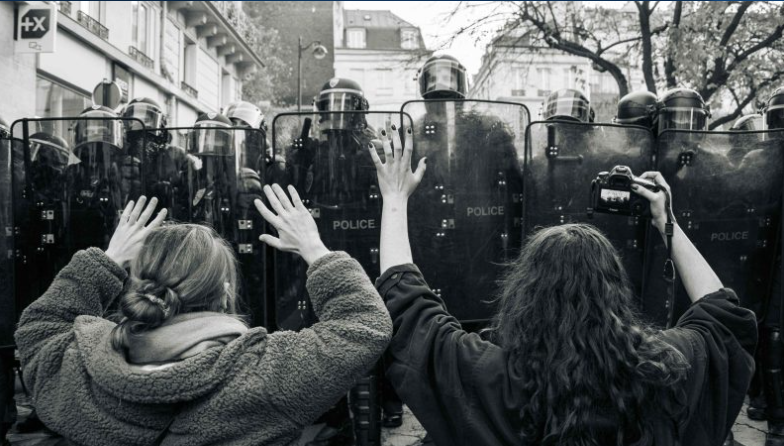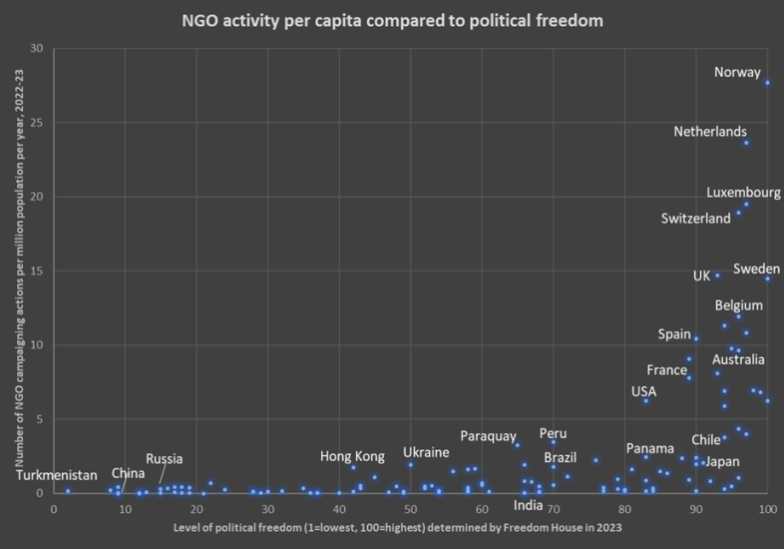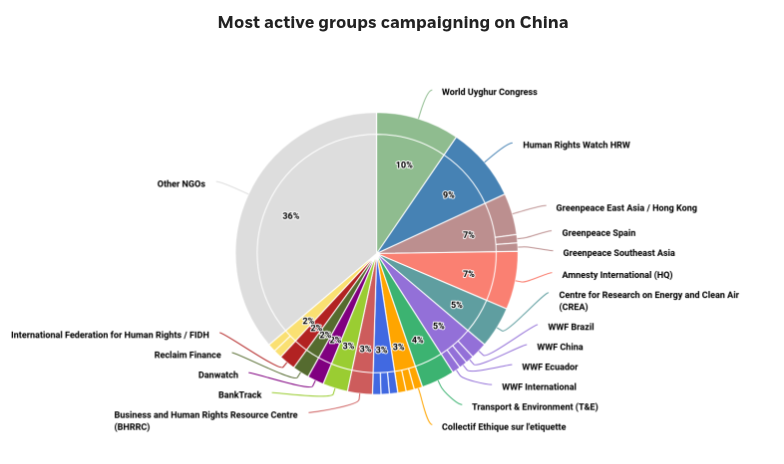
NGO Scrutiny in Countries with Low Civil Society Freedom

No one should be surprised that NGOs have difficulty operating in states with limited civic freedom. Indeed, even in mildly authoritarian countries, independent NGOs may be so tightly regulated or hassled by arbitrary sanctions that it is difficult for them to be effective. Meanwhile, in some of the world’s ‘freest’ countries such as Norway and Sweden (as defined by the think tank Freedom House), NGOs campaign up to 130 times as much as any counterparts in the world’s ‘least free’ states
The accompanying chart comparing NGO campaigning per capita to countries’ political freedom, reveals a strong and unsurprising correlation between civic freedom and NGO activity. Campaigning groups are 10 to 100 times more active in countries in Western and Northern Europe and North America, all regions which are the world’s freest politically, than in countries with limited or no democracy.

Absence of local NGOs in low democracy states no shield for foreign firms
This does not mean that countries without thriving internal NGOs go unchallenged. A significant amount of campaigning criticising national governments and companies takes place outside their countries, especially as this is the only way NGOs can draw attention to abuse.
Click here to get in touch and understand how SIGWATCH can help your business
China is a case in point. During 2022-23, SIGWATCH identified 264 campaigning actions targeting the Chinese government or Chinese companies. All but 7 of these actions originated from NGOs outside mainland China. The most active groups targeting China in 2023 were World Uyghur Congress, based in Germany, and Human Rights Watch based in the US.

In other cases, such as targeting of Myanmar, and occupied territories like Western Sahara, diaspora and breakaway populations play a leading role in external campaigning. These peoples are given voice by groups such as Justice for Myanmar (operating from an undisclosed location), and Western Sahara Resource Watch (based in Brussels).
How does this affect companies with overseas operations?
Multinationals which are reliant on extended supply chains should take note. Foreign investors and customers might be tempted by spatial fixes offering ultra-low cost and non-unionised labour, or less stringent environmental obligations. However, they will be unlikely to escape the notice of local and overseas campaigners for long.
Not only will commercial relationships with offshore suppliers in controversial states be highlighted by campaigners to criticise companies and the regimes, but firms will likely be targeted in their home countries or any other place where they are particularly visible. If these countries are already especially open to campaigning, companies can expect a very hot reaction from foreign NGOs who are keeping a close watch on activities in ‘less free’ states.
About the data
NGO campaigning is calculated from the SIGWATCH database as the number of campaigning actions in 2022-2023, averaged per year and per capita, to correct for variations in national populations.
Political freedom is measured using the latest data from the US think tank Freedom House. Every year Freedom House scores countries on their adherence to the Universal Declaration of Human Rights. For more on its dataset, see https://freedomhouse.org/report/freedom-world